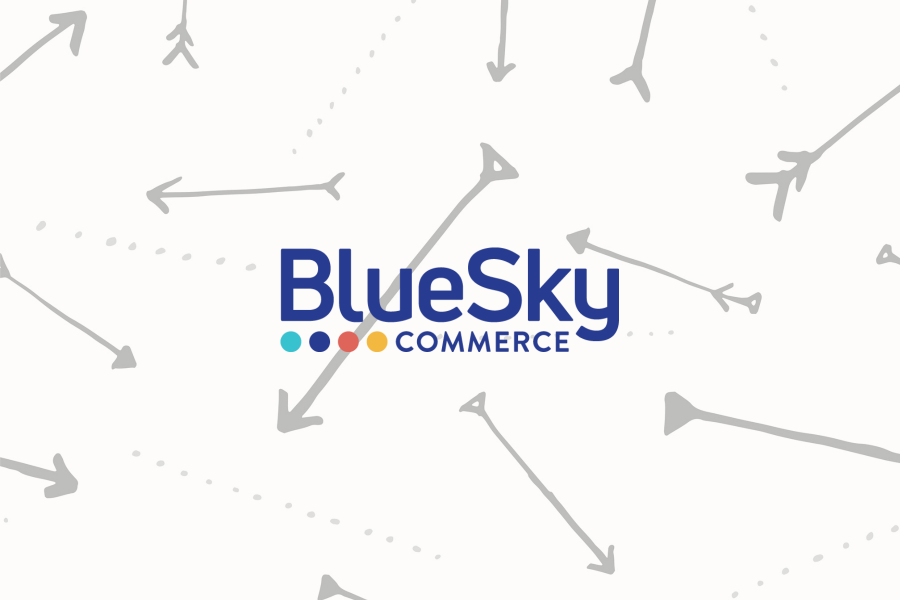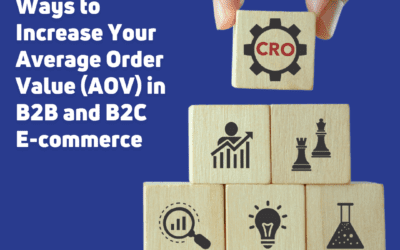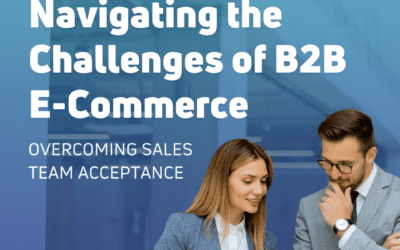In the e-commerce world, a microsite, multisite, or extended site has many interpretations or definitions. Collectively, we will refer to them as an “e-site,” which in general describes the idea of having multiple websites that address different business needs in an...
Insights
Strategic Importance of Sequencing Commerce, Customer, and Operational Technologies
BlueSky Commerce Blog
Featured
Related Posts
Speed Up, Cash In – Increase E-Commerce Performance
Why Performance Matters In today's digital age, the performance of an e-commerce site is a critical factor in determining the success of an online business. A fast, reliable, and responsive e-commerce platform enhances the user experience and directly impacts sales...
Have Questions?
Get In Touch

Kevin Lyons
- The Great Debate: Buy vs. Build
- The Intention of a Mobile First Strategy
- The Simple Beauty of a Flow Chart
- Multi-Sized Lessons for Multi-Sized Approaches
- Is Strategy a 4 Letter Word?
- The Power of One
- Carpenters and Their Tools: The Operations Behind Transformations
- The Evolution of Organizational Value
- The Sweet Sound of a True Strategic Culture
- Strategic Importance of Sequencing Commerce, Customer, and Operational Technologies
Follow Us
Strategic Importance of Sequencing Commerce, Customer, and Operational Technologies
Timing is Everything
As a retail veteran of 25 years and a leader of digital teams since 2007, I have learned a lot of lessons about the proper sequencing of major technology initiatives. In digital retail, there is always a crunch on time and resources and pressure on return on investment.
I have implemented re-platform projects for eCommerce at 4 different retailers leveraging technologies from HCL/IBM, SAP/Hybris, Salesforce/Demandware, Adobe/Magento, and Oracle/ATG. In every instance, the business saw an increase in revenue by an average of 20% within 3 months of implementation. One SAP project actually saw a slight increase due to upgrading during an overhaul of SAP Versions and bad SEO management before and during the implementation. While SEO takes a short-term hit most of the time, the growth is there producing a predictable ROI.
For more complex integrations like CRM, OMS, and WMS, time to pay back takes longer, usually 6-12 months post-implementation. ERP can be a multi-year implementation and multi-year ROI. This is usually due to the complexity of process implementation on top of technical implementation. In many cases, like at one large retailer, we did not do a full CRM implementation but opted for a more robust ESP implementation and marketing engine (Exact Target, now Salesforce Marketing Cloud). At another multi-channel retailer in the fashion and jewelry industry, we used Manhattan OMS and RedHat WMS to boost productivity and efficiency AFTER finishing our eCommerce platform upgrade.
In all cases, the goal is to implement and integrate only once. If any business is considering OMS, CRM, or WMS (and in some edge cases ERP), I have always opted to ensure I have the right eCommerce platform then integrate these supporting systems one time. In the case of a very large electronics retailer, when we implemented CRM before we had re-platformed to Oracle/ATG eCommerce, we wound up burning multiple cycles and over $1M in resources to re-implement to the new platform (we were also overhauling Order Management to Sterling).
2:1 Ratio for Implementing Major Functionality
In any technical project described above, I always advise based on my personal experiences that you should plan for twice the time of setting up business rules, processes and data cleansing BEFORE and compared to the actual time to implement the application. If you are considering ERP, OMS, and CRM, these complex systems demand that your data and processes be documented and integrated before and during the implementation of the software. If you do not, usually this leads to a negative impact on the employee and customer experience. This results in blaming the software and winding up throwing it out in favor of something new.
You quickly realize that this “doom loop” thinking and acting can cause severe financial, operational, and customer experience impacts. This often causes deeper rifts between business and technical resources that may already exist and a lack of trust from the C-suite in your roadmap strategy.
One client we recently worked with has planned an 18-month data, segmentation and process project BEFORE deciding on and implementing their CRM, which will be about 6 months of integration work technically.
At my last company, we opted for a modular approach to ERP that still is taking them 3 years to complete due to the efforts to re-work processes and structures of governance not planned for from IT before deciding on the vendor (Microsoft Dynamics).
Conclusion
An important part of any good strategy is certainly to keep a watchful eye on your biggest competitors. However, it is my experience (think Walmart’s ballooning costs to keep pace with Amazon) that without deeper analysis of the root causes of that competitor’s historical investments and roadmap sequencing, you may wind up chasing an incorrect initiative in the wrong order. Walmart tried attacking eCommerce personalization and product data before addressing legacy inventory and IT infrastructure that has taken a decade longer than anticipated to close the gap.
ERP can be an exhaustive program that eats at resources, time, and budget. However, if done correctly, can be run in parallel to an eCommerce platform. CRM can be less exhaustive but still drains if you need to implement twice when you change the main commerce touchpoint it will integrate with. It is my experience that taking the time to have marketing work through the data structures, business rules, and segmentation and optimize your ESP, WHILE you work on eCommerce implementation shortens the gap to get both done within an 18-month cycle. It also saves a lot of time and money against strained technical and business resources.
Start the Conversation
BlueSky’s unmatched commerce expertise allows us to help our clients understand how to utilize omnichannel and business solutions to reach, attract, engage, and grow customers.

Related Posts
7 Effective Ways to Increase Your Average Order Value (AOV) in B2B and B2B2C E-commerce
In the competitive B2B and B2B2C e-commerce landscape, businesses are grappling with slower sales growth and the need to find new revenue streams. Leaders responsible for e-commerce strategies must focus on innovative approaches to recover lost revenue and drive...
Leveraging Voice of Customer Research in B2B E-commerce: A Strategic Imperative
Understanding stakeholder needs is crucial in the rapidly evolving landscape of B2B commerce. Conducting Voice of Customer (VoC) research has emerged as a strategic imperative for businesses aiming to transition to B2B e-commerce successfully. This blog will outline...
Navigating the Challenges of B2B E-commerce: Overcoming Sales Team Acceptance
The digital revolution has reshaped the way businesses operate, and B2B e-commerce has emerged as a critical avenue for growth. However, transitioning to B2B e-commerce is challenging, and one significant hurdle is gaining acceptance from your sales team. This...



